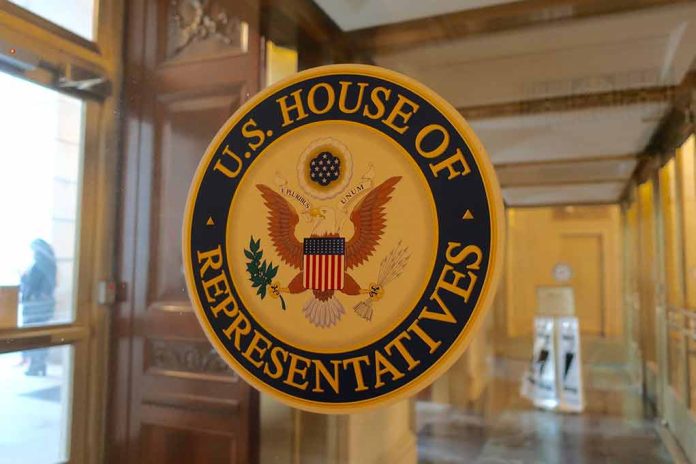
Amidst heated debate, Rep. Jasmine Crockett staunchly opposed the “Dismantle DEI Act,” challenging its implications on systemic barriers and societal equity.
At a Glance
- Rep. Jasmine Crockett criticized the “Dismantle DEI Act” aimed at reducing DEI initiatives.
- The bill targets federal funding and roles dedicated to diversity, equity, and inclusion.
- Crockett ranted about historical oppression faced by underrepresented communities.
- The bill passed the House Oversight Committee along party lines.
Crockett’s Challenge to the DEI Act
Texas Democrat Rep. Jasmine Crockett voiced strong opposition to the “Dismantle DEI Act” during a House Oversight Committee hearing, emphasizing the need for diversity, equity, and inclusion initiatives. The act, introduced by Sen. JD Vance and Rep. Mike Cloud, aims to dismantle DEI programs in government, prompting Crockett to argue against what she saw as the misapplication of “white oppression.” These DEI efforts, she asserted, play crucial roles in overcoming systemic barriers faced by historically marginalized communities.
Crockett specifically objected to the rhetoric surrounding the bill, particularly the use of “oppression” by Rep. Clay Higgins. She argued that the term did not align with the experiences of white males in America, contrasting them with colonization and slavery as examples of genuine oppression. Crockett defined oppression as “prolonged cruel or unjust treatment,” drawing attention to the need for DEI initiatives rooted in historical realities.
UNHINGED RACIST Rep. Jasmine Crockett screams "White people were never oppressed because they came here willingly!!!"
"We didn't ask to be here!" – THEN FREAKING LEAVE, miserable skank!!!!! pic.twitter.com/P2k71buSKj
— blue pill red pill your choice (@andred928) November 21, 2024
Implications of Historical Context
Crockett delineated the stark differences in historical narratives, emphasizing the absence of systemic white oppression in the U.S. She highlighted the atrocities of slavery and forced migration endured by Black communities, reinforcing the importance of DEI programs. Her critique underscores a pressing concern in contemporary policy debates: ensuring that legislative decisions account for the uneven societal playing fields influenced by historical injustices.
“You consistently said over and over the word ‘oppression,’ and every time that you said it, it was almost as if I was hearing nails on a chalkboard, because it seems like you don’t understand the definition of ‘oppression.’ And I’d ask you to just refer to Google to help you out. Oppression is the prolonged cruel or unjust treatment or control. That is the definition of oppression.” – Rep. Jasmine Crockett
Beyond historical acknowledgment, Crockett addressed the current disparities in representation in government. While white men constitute 30% of the U.S. population, they hold over 60% of elected offices, a statistic she argued necessitates DEI focus. Highlighting her own journey as only the 55th Black woman in Congress, Crockett called for recognition of these imbalances in fostering equitable governance.
Rep. Jasmine Crockett goes on a full racist rant, saying white people can't use the word "oppression" because they've never been oppressed. https://t.co/Orlm3h5oXQ
— Media Research Center (@theMRC) November 21, 2024
DEI Act and Republican Priorities
The “Dismantle DEI Act,” formally known as H.R. 8706, proposes to cease federal support for DEI programs, a move reflecting potential Republican legislative focuses. Crockett critiqued these priorities, asserting that DEI programs enhance workforce performance by dismantling racial barriers and promoting inclusiveness. Meanwhile, Rep. Mike Cloud argues that such initiatives create division and inefficiency, asserting that the Act will ensure equitable treatment without DEI interventions.
“It prohibits federal funding for DEI activities. It ensures equal treatment. This is something we would love to see Trump sign.” – Rep. Mike Cloud
Despite the partisan success of the bill passing the House Oversight Committee, its future remains uncertain with a Democrat-controlled Senate and President Biden’s administration. The debate continues, highlighting the role of DEI in shaping equitable governance and addressing systemic discrimination, lending crucial context for any further legislative action on this front.













